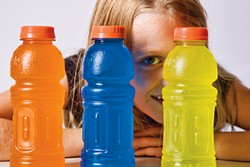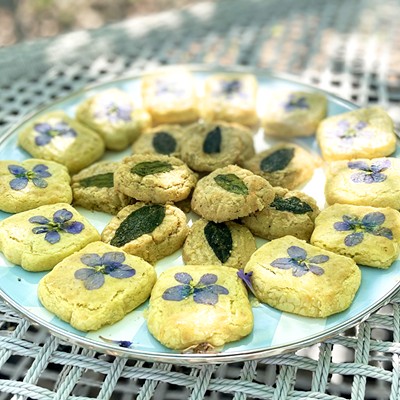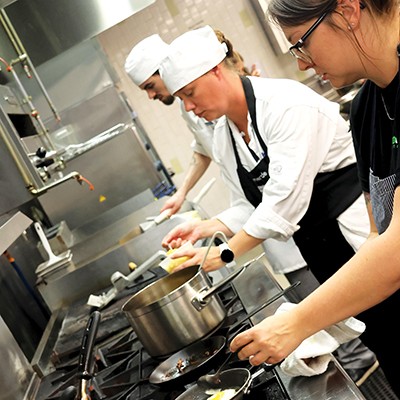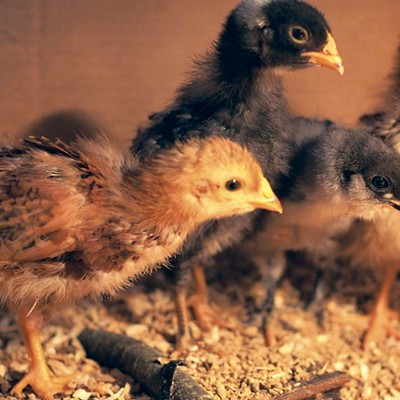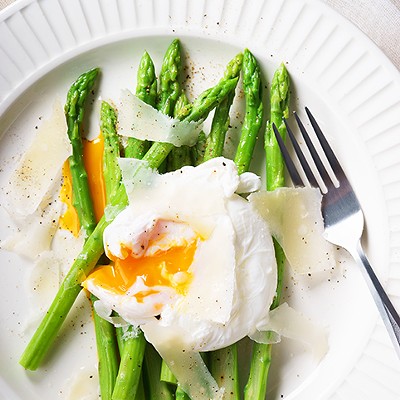There are few things that one can do to have an immediate and positive impact on one’s health. Increasing physical activity and changing one’s diet are critical steps in improving overall health and vitality, but persistence, organization and dedication are required to get results.
Thankfully, there is something everyone can do to instantly improve their well-being, and it’s practically free. And delicious to boot!
Just. Drink. Water.
Recent studies suggest that as many as 75 percent of Americans are chronically dehydrated. Most folks know that water is essential to sustain life, but many are unaware of the ramifications of chronic dehydration. Water is necessary for the proper absorption of vitamins and nutrients, liver and kidney detoxification, and proper digestion. Failure to consume enough water leads to exhaustion, weight gain, ulcers, headaches, high blood pressure, joint pain and kidney disease.
The solution to this chronic problem is both simple and complex.
Consumers are constantly bombarded with beverage advertisements that promise nutritional benefits or enhanced performance. Go to any kids’ sports practice or game and you’ll see bottles of Gatorade, Powerade and Vitamin Water on the sidelines. Well-meaning parents and coaches have been led to believe that these drinks are healthful alternatives to soda, and that they will help to refuel little athletes and replenish electrolytes after a game. In reality, unless one is engaging in extended endurance athletics in extreme heat and humidity, water is the most perfect form of hydration available.
In addition to being unnecessary, sports drinks can actually be harmful. Scientific research overwhelmingly indicates that consumption of sugar-sweetened beverages (SSBs) leads to weight gain and obesity in children and adults. Obesity has now surpassed smoking and drinking as the number one cause of preventable death in the U.S., with one in three adults and one in six children being considered obese. This affliction opens the door to more than 30 diseases, including heart attack, stroke and type-2 diabetes. SSBs, on average, account for about 13.5 percent of total calories in the American diet today.
Despite its healthful-sounding name, a 20-ounce bottle of Vitamin Water contains 31 grams of sugar. That is the same amount of sugar that is in three Krispy Kreme doughnuts. To put this in perspective, the American Heart Association states that the maximum daily intake of sugar should not exceed 37.5 grams for men, 25 grams for women, 20 grams for teenagers, and only 14 grams per day for young children. A pouch of Honest Kids Juice Drink, labeled as a “certified organic thirst quencher” contains 9 grams of sugar per 6.75-ounce serving. That’s more than half of a child’s daily sugar allowance in less than one cup of liquid.
Alternatives to sugar-sweetened beverages only serve to further complicate the beverage quandary. One hundred percent fruit juice does offer some nutrients not found in sports drinks and sodas, but still contributes to overall daily caloric intake. Research has shown that consumption of fruit juice as opposed to consumption of whole fruit results in a decreased sensation of fullness and increased calorie intake.
Diet beverages, while lacking in sugar, contain caffeine and phosphoric acid, a combination that increases the risk of bone loss. Additionally, these beverages act as a mild diuretic and actually result in increased dehydration. Artificial sweeteners are proportionally sweeter that sugar and, as a result, regular consumption of diet beverages has been shown to increase one’s preference for sweet drinks and sugary foods. Basically, making naturally sweet, nutritious foods like carrots, apples and peas, less palatable.
Also working against our efforts to simply drink more water is news of municipal water systems that have failed to provide safe drinking water to citizens. Despite recent news stories out of communities like Flint, Michigan, most tap water in the United States has been proven to be as safe or safer than bottled water. According to a report by Food and Water Watch, approximately half of the bottled water sold in the U.S. is simply tap water that companies have put into plastic bottles and resold at huge profits.
Surprisingly, regulations for bottled water are usually weaker for some microbial contaminants. Bottled water is regulated as food by the FDA, whereas tap water is regulated by the EPA under much stricter standards than bottled water. Every local water treatment plant is required to make an annual water quality report available to city residents. According to City Water, Light and Power’s CWLP 2015 Water Quality Report, “tap water produced by (CWLP) met all United States Environmental Protection Agency and State of Illinois drinking water health standards. The purification process is monitored 24 hours each day, and CWLP is pleased to report the utility had no violations of any contaminant level or of any other water quality standards in 2015.”
In spite of our excellent water in Springfield, and knowing that water is essential for good health, many people struggle to simply drink it. At some point it seems like the general population just stopped being OK with plain water. Corporations led us to believe that they had trumped Mother Nature, that they had made a product that could make us better. But our bodies are not easily fooled and, as usual, the simplest things usually prove to be the best. Eating real is about fueling your body with whole foods that are unprocessed and as simple and pure as possible. What could be simpler than water?
-If you’re looking for a boost after an intense bout of exercise, eat a banana or clementine along with drinking water. These fruits provide more potassium and nutrients than most commercial sports drinks, and the complex carbohydrates will be delivered into the body’s bloodstream at steadier rate.
-Increase your consumption of juicy fresh fruits and vegetables. Eating foods like cucumbers, melon, tomatoes, grapes and citrus are tasty ways to up your water intake. Brothy soups and fruit and veggie-rich smoothies also help keep you hydrated.
-Water down fruit juice and sugary drinks like lemonade and fruit punch. Gradually increase the amount of water added to these drinks and kids won’t be the wiser.
-Fruit infusions are probably the simplest and most beautiful way to enhance water without adding sugar or calories. Try adding fresh mint, basil, cucumber slices, strawberries, melon or pineapple to a pitcher of water in your fridge. When infusing water, use organic produce whenever possible and wash it well.
Ashley Meyer lives with her husband and soon to be 4-year-old daughter in her great- grandmother’s farmhouse. She enjoys wrangling the old homestead. In her five years there, she’s never managed to find the time to both grow green beans and then put them up as dilly beans. This year she’s settling for quick refrigerator pickles.
All you need is water
Sports drinks can be harmful
[
{
"name": "Air - MedRect Combo - Inline Content 1",
"component": "11490391",
"insertPoint": "3",
"requiredCountToDisplay": "1",
"parentWrapperClass": "fdn-ads-inline-content-block"
},{
"name": "Air - MedRect Combo - Inline Content 2",
"component": "11490392",
"insertPoint": "7",
"requiredCountToDisplay": "5",
"parentWrapperClass": "fdn-ads-inline-content-block"
},{
"name": "Air - MedRect Combo - Inline Content 3",
"component": "11490393",
"insertPoint": "12",
"requiredCountToDisplay": "9",
"parentWrapperClass": "fdn-ads-inline-content-block"
}
]
Illinois Times has provided readers with independent journalism for almost 50 years, from news and politics to arts and culture.
Your support will help cover the costs of editorial content published each week. Without local news organizations, we would be less informed about the issues that affect our community..
Got something to say?
Send a letter to the editor and we'll publish your feedback in print!

